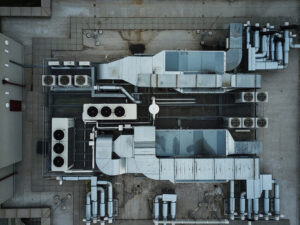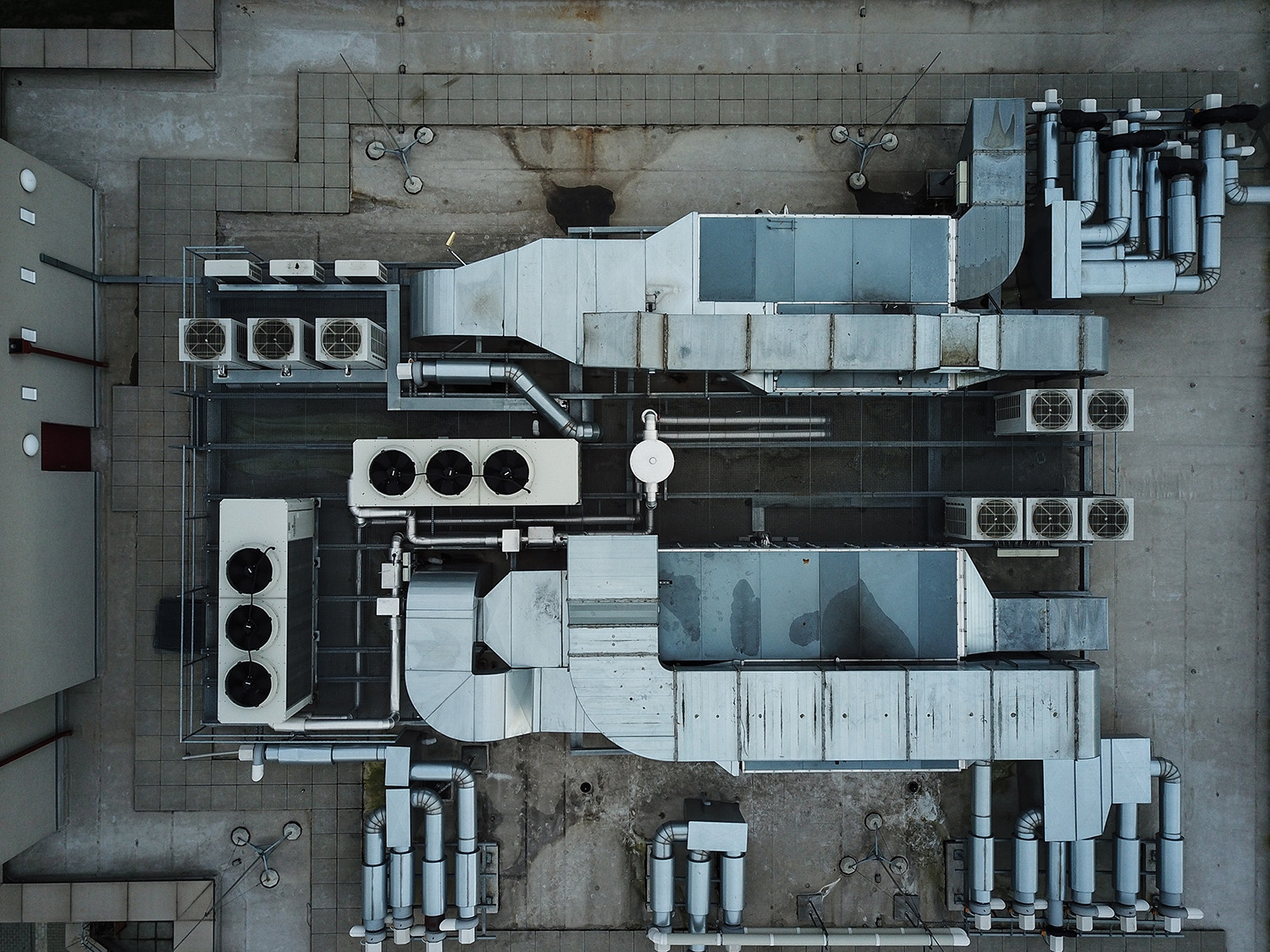A commercial HVAC system facilitates three different processes: heating, ventilation, and air conditioning. The HVAC system is controlled by a central thermostat. Furnaces, for example, use a gas valve to ignite a burner to heat up the air inside the building. The heat from the burner then circulates through a heat exchanger, causing it to become hotter. The hotter air then pushes through a condenser, where it converts back to gas and is expelled.
Another type of commercial HVAC system is known as a variable refrigerant volume or VRF. These two terms refer to the same system and can be used interchangeably. VRF or VRV systems use a single outdoor condenser and multiple indoor units to heat and cool the building. They are a great choice for medium-sized applications. They also work great in multi-zone buildings. Here are some differences between the types of Commercial HVAC systems.
Simple systems use direct expansion heating and cooling. These units use electricity or oil to heat the air. In addition, they use the main furnace that heats the air. These systems are typically more space-efficient and require less drainage than complex ones. Commercial HVAC systems can also incorporate geothermal heat pumps. The geothermal heat pumps work by concentrating heat from underground reservoirs, making them a renewable energy source. They are also more energy efficient.
While residential HVAC systems have many advantages, commercial systems are typically larger and louder. A rooftop commercial HVAC system is a great option because it avoids potential noise disturbances and gives technicians a safe place to work. The rooftop system can also be modified to expand the capacity as needed. A modular system can be added as needed without disrupting the building’s occupants. This allows for increased efficiency while minimizing maintenance costs. So, consider the benefits of a modular commercial HVAC system.
Residential HVAC is typically more personal and requires more direct interactions with customers. The customer is often a single contractor or family. Commercial HVAC, however, works with multiple stakeholders. Most jobs are negotiated by a company, and contractors send invoices to the billing department. This means that a commercial HVAC worker doesn’t have much opportunity to make social connections. This isn’t to say that there are no benefits to commercial HVAC careers. These jobs are lucrative and highly sought after, and there are many ways to prepare for success. Adding certification to your resume is one of the best ways to make your application stand out from the competition.
Commercial HVAC systems are complex and often require specialized equipment and technicians. Attempting to repair these systems on your own may not be as effective as a professional. Keeping a checklist of maintenance tasks is a great way to prevent costly repairs and maintain a quality system. The commercial HVAC systems should be robust, durable, and highly sophisticated. There are many things that you should consider when selecting an HVAC contractor. So, before hiring a contractor, make sure that you know the best way to care for your building. It can make all the difference.
The two main types of commercial HVAC systems are split-split and packaged. Single-split units feature an outdoor unit and an indoor air handling unit. Single-split ductless units are great for small commercial spaces. Multi-split systems, on the other hand, contain multiple indoor air handling units that can be individually controlled. The key difference between the two is that single-split systems are usually located outside, while multi-split systems require several indoor units.
Single-split systems are the least expensive type of commercial HVAC system, suitable for small buildings. The individual heating and cooling capacities of these systems can be controlled through a thermostat or control panel. Single-split systems need an outdoor space for the outdoor units. However, they are inexpensive compared to central systems. Single-split systems are perfect for server rooms, smaller commercial buildings, and small-scaled business spaces. The most important consideration for any HVAC system is your budget and lifespan.
The commercial HVAC industry is closely related to the commercial real estate and retail industries. Because of the recent Covid-19 outbreak, commercial spaces have undergone a dramatic change in their structure. While residential HVAC professionals tend to earn slightly less than their commercial counterparts, they can supplement their hourly pay with commissions on sales. For this reason, residential HVAC professionals should be aware that the job is more demanding than the former. It is essential that commercial HVAC professionals maintain proper health standards in both types of environments.

